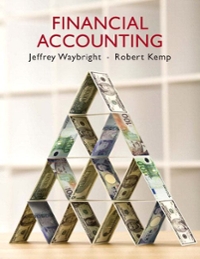Question
Please answer the following discussion: Suppose that a U.S.-based accounting firm has a major audit client in a foreign country that routinely engages in business
Please answer the following discussion:
Suppose that a U.S.-based accounting firm has a major audit client in a foreign country that routinely engages in business practices that are considered legal in that country but that would qualify as both illegal and unethical in the United States. What specific moral or ethical obligations, if any, would these circumstances impose on this accounting firm? Based on this, what responsibilities, if any, do you believe PwC had to Gazprom's minority investors?
Gazprom during the 1990s existed as a state within the state. The government was loyal to the gas monopoly, though there were a few attempts to change the situation. For example, in 1992, the government tried to open the gas industry to competition; however, Gazprom was smarter than the government and powerful: After an audit by the government was finished, Viktor Chernomyrdin became responsible for the oil and energy complex and was given the rank of vice-premier. Under Chernomyrdin, Gazprom was given exclusive rights to supply gas on the state's foreign contracts, and the company could keep 45% of the earnings from these contracts. These operations were made tax exempt.
In 1997, Boris Nemtsov became the first deputy prime minister and promised to split up Gazprom. There was some restructuring, but mostly to Gazprom's liking. All drilling enterprises within Gazprom were to be united under a specialized company, Burgaz, and production and transport companies were to delegate their sales functions to a limited liability company, Mezhregiongaz.
The latest example of how the legal machinery can be used in favor of Gazprom is the repeal of an anti-monopoly service's regulation. This establishes a legal basis for Gazprom to become an absolute monopolist in Russia's gas market. Now Gazprom is free to buy any Russian gas producing enterprise it pleases. There are no obstacles at present for Gazprom to set up a complete monopoly enterprise, not only on exports but also on the whole gas production system in Russia.
Thus the relationship between Gazprom and the Russian state is rather complex and has changed over time. In the 1990s, Gazprom functioned as a state within a state and operated mostly in the interests of its management. The state was not able to control the gas giant either formally (most of the 38% of state shares were managed by Gazprom itself) or informally (Gazprom was a very successfully lobbyist). The government was by and large tolerant of Gazprom because the company supplied gas at very low prices to Russian consumers, and often without any payment at all. The Russian economy benefited from stable and inexpensive supplies of gas, and in return, Gazprom was able to exercise certain financial advantages like its privileged access to monies from its exports. These funds to some extent allowed it to finance its own investments.
Step by Step Solution
There are 3 Steps involved in it
Step: 1

Get Instant Access to Expert-Tailored Solutions
See step-by-step solutions with expert insights and AI powered tools for academic success
Step: 2

Step: 3

Ace Your Homework with AI
Get the answers you need in no time with our AI-driven, step-by-step assistance
Get Started


